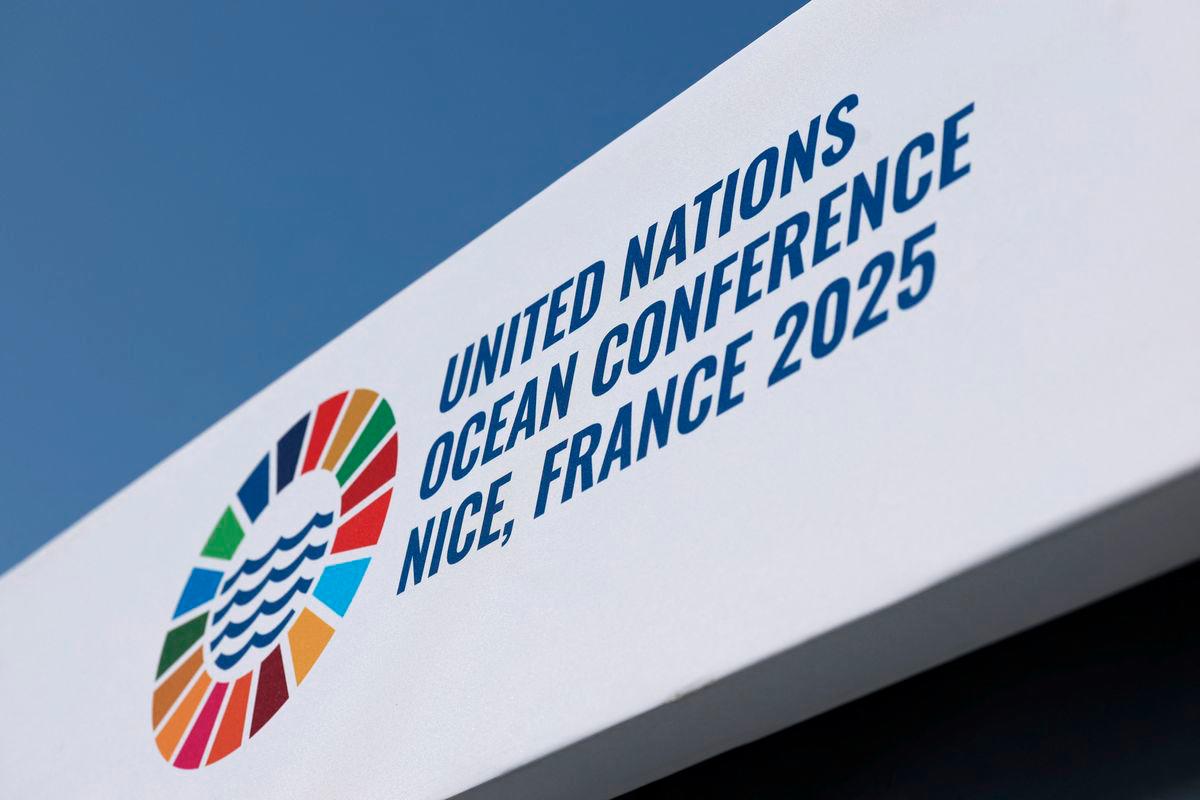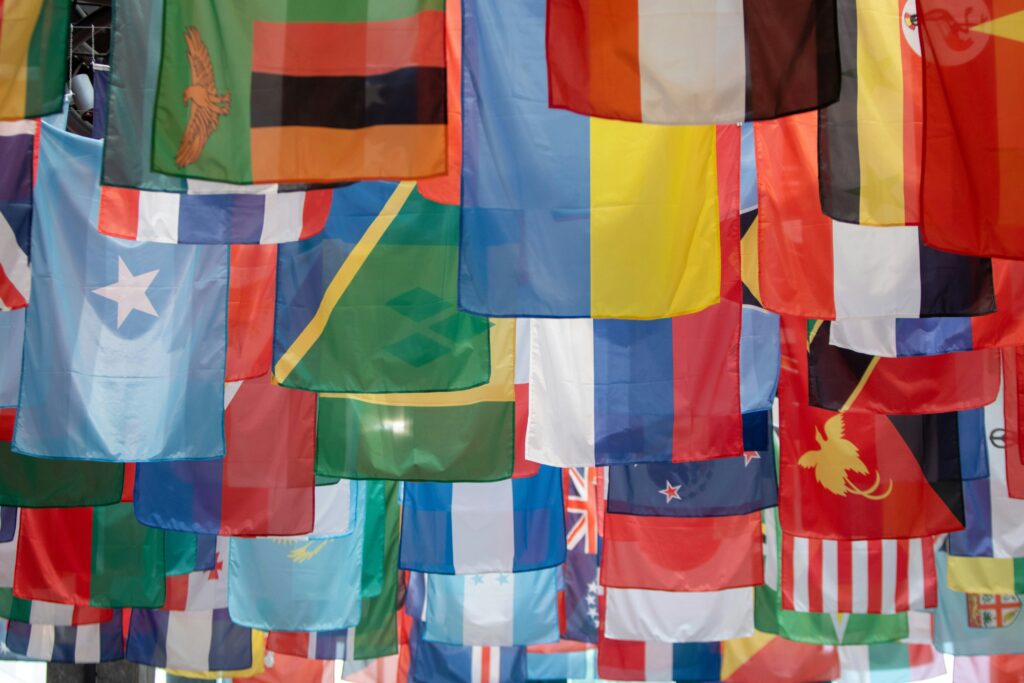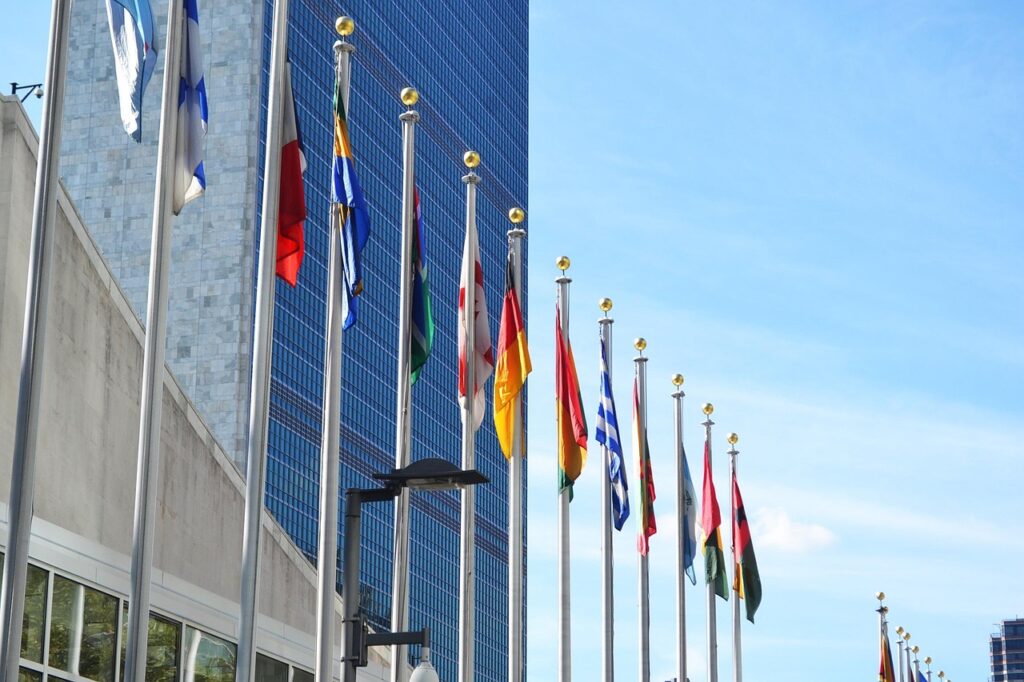Insights from Alexandre Cougoulic, Partner, International Development, Portland
The Third United Nations Ocean Conference (UNOC3), held from June 9 to 13, 2025, in Nice, France, marked a pivotal moment in global ocean governance. Heads of state, international institutions, scientists, civil society, and private sector actors convened to assess progress on Sustainable Development Goal 14 (Life Below Water) and reinvigorate global ambition for ocean health.
The ocean is no longer on the sidelines of global affairs. At UNOC3, marine protection went from being a relatively niche topic to the centre of geopolitical strategy, development planning, and climate ambition. Headlines spoke of a “glimmer of hope,” yet the conference revealed a complex, fast-changing landscape with profound implications for international development. UNOC3 wasn’t merely about conserving marine ecosystems; it addressed livelihoods, power dynamics, and the future of multilateralism.
This analysis provides a concise overview of why UNOC3’s outcomes are essential and what strategic communications and development planning should consider next.
The ocean as development infrastructure
Healthy oceans underpin food security, livelihoods, climate resilience, and disaster risk reduction. Once seen primarily as an “environmental” concern, ocean health is now recognised as an economic and humanitarian imperative. UNOC3 also gave the impression that the global community was waking up to the untapped potential of the “blue economy”.
From small-scale fisheries to coastal agriculture, ocean degradation disproportionately impacts the most vulnerable. Testimonies from Small Island Developing States (SIDS) and Least Developed Countries (LDCs) at UNOC3 underscored that ocean action is a matter of survival, not just sustainability.
Takeaway: Marine protection must be a central component of development strategies. Investments in coastal resilience, sustainable fisheries, and blue economy initiatives are not optional add-ons; they are vital to achieving SDG 1 (No Poverty), SDG 2 (Zero Hunger), SDG 13 (Climate Action), and beyond. Integrating ocean health into broader programmes—such as poverty reduction, disaster risk management, and economic justice—strengthens impact and coherence.
Leadership is shifting, and so are narratives.
The absence of a senior U.S. delegation in Nice left a leadership vacuum that others swiftly filled. China’s Vice President Han Zheng led a high-profile delegation, publicly pledging to ratify the High Seas Treaty, which is widely credited with tipping the momentum toward success. Simultaneously, China positioned itself as a development partner by offering capacity-building assistance to Small Island Developing States (SIDS) and other nations in the Global South.
Takeaway: Geopolitical realignment requires agile, audience-specific messaging. Leadership on global commons issues is increasingly shared among new coalitions. Strategic communications should map emerging influencers, frame messages that resonate across regions, and anticipate shifts if major powers re-engage or new alliances form.
The “ambitious majority” finds its voice.
UNOC3 highlighted the momentum of an “ambitious majority” across key issues: marine protection, plastic pollution, and deep-sea mining. More than 90 countries endorsed the “Nice Wake-Up Call” on plastics, urging the adoption of lifecycle-based regulation ahead of the Geneva negotiations. Thirty-seven nations backed a moratorium on deep-sea mining. Yet major producers (China, the U.S., India, and Saudi Arabia) remained hesitant or opposed.
Takeaway: This dynamic offers a powerful narrative: emphasise progress driven by the majority while diplomatically isolating holdouts. Celebrating coalition-building bolsters credibility, but acknowledging gaps honestly is equally essential. Practical messaging approaches include:
- Showcasing collective wins (e.g., “90+ countries united for ambitious plastics action”) to sustain momentum
- Explaining the stakes of non-participation in a factual, measured tone, inviting broader engagement rather than outright condemnation
- Tailoring narratives to different audiences: for philanthropic funders, highlight leverage points; for multilateral bodies, underscore consensus-building opportunities; for businesses, focus on reputational and supply-chain implications of aligning with the “ambitious majority”
Finance and justice: the missing pieces
The Ocean Action Plan outlined priorities ranging from deep-sea research to inclusive fisheries governance. Despite headlines of €8.7 billion in blue finance pledges, many delegations warned these amounts are insufficient and risk slow disbursement.
Takeaway: Abstract figures hold little meaning for communities on the front line, and headline figures alone will struggle to achieve cut-through. Communications and programming should translate finance commitments into tangible human stories: how funding enables coastal communities to adapt to sea-level rise, empowers women fishers with new livelihoods, or strengthens local climate resilience. Ocean justice (who benefits, who pays, who decides) must be at the forefront. With some traditional donors becoming less engaged, responsibility is increasingly shifting to the EU, Japan, philanthropies, and emerging funders. It is essential to:
- Develop narratives and case studies illustrating investment impact (for example, a blue bond financing reef restoration that safeguards tourism jobs)
- Frame funding appeals by linking ocean health to cross-cutting development goals (gender equity, food security, climate adaptation)
- Balance donor visibility with recipient ownership in storytelling, ensuring equitable representation of local voices
- Highlight innovative financing mechanisms, blue bonds, debt-for-nature swaps, blended finance, in thought leadership and stakeholder dialogues
Science is the bridge; leverage it.
From the One Ocean Science Congress through UNOC3, scientists emphatically called for evidence-based policy, and their voice was heard. Commitments to expand ocean observation networks, improve data-sharing, and bolster marine research capacity in developing countries featured in final declarations. In an era of growing anti-intellectualism, the Congress showed that science can be a powerful voice in a fragmented world.
Takeaway: Aligning advocacy with scientific consensus cuts through polarisation and bolsters urgency. To sustain science-policy integration:
- Prioritise capacity-building in data collection and monitoring for developing-country partners, and communicate those efforts (e.g., supporting deployment of buoys to track ocean warming)
- Collaborate with research institutions to translate complex findings into accessible narratives (infographics, short videos, op-eds) that resonate with policymakers, funders, and the public
- Highlight how scientific insights inform practical solutions: mapping critical habitats for new marine protected areas or modelling plastic flows to target reduction campaigns
- Weave lived experiences (fisher communities, coastal residents) with scientific evidence and geopolitical context to maintain momentum and drive action in upcoming negotiations
A new chapter: complexity, opportunity, and strategic communications
Taken together, UNOC3’s outcomes mark a new chapter in ocean governance, one that is complex and multipolar, yet full of opportunity. Development actors, philanthropies, multilateral bodies, and businesses that integrate ocean health into broader agendas, engage emerging leaders, amplify marginalised voices, and champion science and finance will be essential in turning ambition into action.
What’s next? Sustaining momentum
UNOC3 was a critical milestone, but far from the final chapter in global ocean governance. The post-Nice period sets the stage for pivotal negotiations: plastics treaty talks in Geneva, the International Seabed Authority’s July meeting on deep-sea mining regulations, and broader sustainability dialogues at upcoming COPs. To sustain the “Nice Wake-Up Call” momentum, communications and programme design should:
- Monitor and interpret evolving negotiation dynamics, adjusting messaging in real time
- Develop stakeholder engagement plans for philanthropic and multilateral initiatives targeting ocean resilience projects
- Craft thought leadership content that highlights consensus-building successes and lessons learned
- Advise private-sector actors on positioning sustainability initiatives in line with emerging standards and public expectations
- Hold governments and stakeholders accountable for translating ambition into concrete action through transparent, evidence-based reporting and storytelling
As ocean governance enters a new phase of multipolar leadership amid geopolitical complexities, collective and inclusive action will determine the future health of the planet’s “blue heart.” The ocean doesn’t wait, and neither can development.
—
About the author
Alexandre co-leads Portland’s International Development team, guiding global clients on strategic communication in complex environments. He brings maritime expertise from advising ports and bodies, such as the International Maritime Organisation (IMO), the International Seabed Authority (ISA), and the One Ocean Science Congress, on topics including ocean diplomacy, coastal resilience, and maritime security.
To find out more about Portland’s international development work, get in touch at [email protected]






